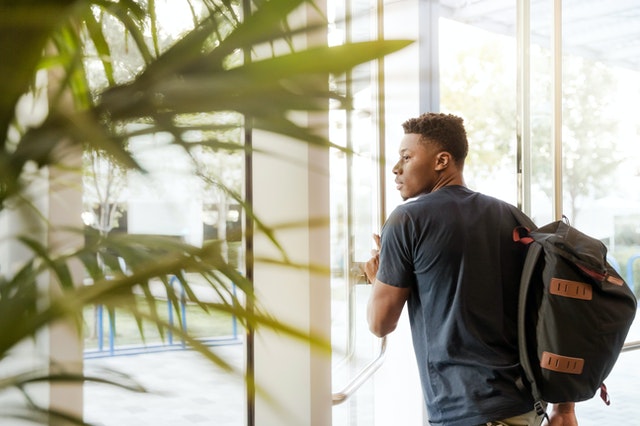I grew up in Minnesota and went to college at the University of Oregon. In high school, I had an incredible group of friends. I was never the cool guy per se, but I felt appreciated, influential, and comfortable.
My first year in Oregon was a social mess. I was lonely and often depressed.
In hindsight, it’s clear that my sense of personal worth was embedded in my social network. The network I left behind. I went off to college and left my confidence at home.
My roots were deep in Minnesota – 18 years with pretty much the same group. The creation of my group growing up was unconscious and slow; it was identity development in a crockpot. (For those not from the midwest, that’s slow marination in low heat.)
It took me a few years to find my friends in Oregon, re-grow some roots, and reestablish my sense of belonging.
Those few years were not very “educational” in the sense of engagement with my classes or academic ideas. Being lonely colored everything in gray. Belonging comes before confidence or problem solving and learning on Maslow’s Hierarchy and this is reflected in my transcript. Big lecture halls just made me feel more alone – “water, water, everywhere and not a drop to drink.”
With my privilege, I had it better than many. My family was strong and supportive (if far away). I had models of college success nearby. It was still a very hard time.
Those years were formative in that I knew staying provincial would be limiting and I had to learn to root my confidence internally. I went through it the slow painful way, the only way I knew how.
We’re building a much better way.
A way that’s fun instead of painful. We’re building a clear path to identity formation in the community. We’re building a stronger Maslow’s foundation so that students can stay focused on esteem, leadership, and actualization.
Community Creates Retention
This is how the academics talk about it:
Thus, the lower performance and persistence rates of first-generation students are more likely attribut-able to the fact that they are less likely to engage in the academic and social experiences associated with success in college (Pike & Kuh, 2005) such as studying in groups, interacting with faculty and other students, participating in extracurricular activities, and using support services (Billson & Terry, 1982; Lohfink & Paulsen, 2005; Nunez & Cuccaro-Alamin, 1998; Pascarella et al, 2003, 2004; Richard-son & Skinner, 1992; Terenzini et al, 1996).
From “First-Generation College Students” by Jennifer Engle, Adolfo Bermeo, and Colleen O’Brien
How do the students talk about it?
Carlito Umali is giving a commencement speech on Sunday. He is profiled in an article in today’s Seattle Post Intelligencer. Carlito is notable because he is a first-generation college student, who succeeded against the odds (more than half of first-generation college students who enroll in a four-year college will not graduate).
What does he think is the most important aspect of his success?
“Community, I believe, is really the foundation of all education no matter what you’re studying,” the English major said. “In one way or another, you’re trying to find community.”
From my own experience, I couldn’t agree more. What I really appreciate about Carlito is that he is giving back:
Carlito Umali will work for SU’s First Generation Project next year, recruiting first-generation students from local high schools. He said he’ll try to show students that they’re welcome at colleges — that academia is a diverse community they can find a place in [. . .]
Carlito made it work and now he’s going to help others find their place.
If only we had enough Carlito to go around.
Coming In Part 2:
Belonging, Hierarchy, and Engagement
The Long Tail of Cool
Breaking Into the Dance Circle




